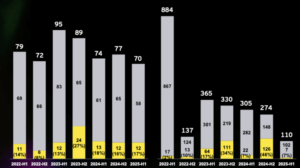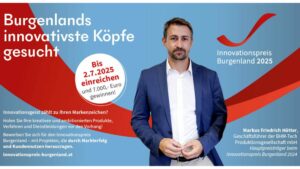The Big Reset with Vassil Popovski: The Know-How and Culture We Need Today As An Ecosystem So We Excel Tomorrow
The transition of the Bulgarian tech sector from an outsourcing destination to a hub for product development and innovation is one of the frequently discussed topics among forward-thinking technology founders and executives. But is the current crisis situation changing the game? Is there a chance for software service companies that are expected to be the hardest hit in the tech sector, to start thinking of their own products and creating IP that may, in the long run, turn them into exponentially growing businesses? Is it now the right time to lay more solid foundations for this transition or even accelerate it? And if so, what is the culture we need to adopt and what are the new roles in the companies that we need?
To look for answers, but also practical tips on starting the process, we talked to Vassil Popovski. Vassil Popovski is the VP of Product Development at Leanplum, a strong global brand of mobile customer engagement technology backed by top VCs. Bulgaria is the Product dev HQ of Leanplum where 90% of the technology is created. So we asked Vassil Popovski to share some thoughts, knowledge, and know-how that will be quite useful for the whole ecosystem.
Trending Topics: From what I’m hearing the pandemic situation didn’t catch you totally unprepared. Is that correct?
Vassil Popovski: Yes, actually working from home was not something that was completely unknown for Leanplum. We had good working from home policies. We don’t have any servers in the office, so all our team needed was laptops and internet connection. To a great extent, I’d say we were able to keep the productivity at the same level as it was in the office.
Probably an important topic here, given the context, is also the psychological safety. And I know this is something that is near and dear to your heart. Has the role of psychological safety changed somehow in the past two months?
Probably the importance of psychological safety has increased. It’s challenging times for everyone everywhere and we as a company have always put people first. Now under the COVID situation, this is even more important now. Psychological safety allows people to feel safe to speak up their mind, it allows people to unleash their creativity and accountability, to lead by example. These are just some of the behaviors that are leaving great products. The most important, psychological safety is a mechanism to create great products – you simply cannot deliver great products and customer experience if the employees are frightened.
How does the global pandemic actually change the game for Leanplum?
From one perspective we needed to change to remote work. But more importantly, our business looks solid right now. Most of our clients are in businesses that are either hardly affected or benefiting from the crisis. A lot of our clients run digital businesses e.g. gaming, e-commerce, etc. Of course, we do have also travel tech companies that are now struggling, but all in all, our customers are doing well. Of course, customer engagement is even more important now and we work very closely with them. Not least, right before the pandemic, we raised $27M as an extension of our Series D round. We were indeed quite lucky with the timing. Although we are operating conservatively because we cannot predict how the global economy will develop in the next months, we are in good shape and envision that our business will continue to grow. Particularly in our Sofia office, which is also the product development headquarters, we continue to invest in people and their growth. We are even hiring software developers, QA, and technical support.
What would the reset mean for Leanplum but also for the local tech ecosystem?
Reset is a good term indeed. Definitely, things will start getting back to normal, just the definition of normal will change. The way we think, the way we communicate, the way we travel – many things will change. For us, this new normal would mean to have more focus and to try doing things more focused and avoid inefficient actions and tasks. We’ll try to focus on things that are helping our customers and thus invest in more quality and expanding our product functionality. Leanplum is expanding and becoming a multichannel platform. Not least, we are expanding the reach and customer support. Obviously, as any other company, we are changing the way we work.
Speaking of the local ecosystem, I think ‘now’ requires building stronger partnerships between the stakeholders of the ecosystem. It’s a great time to continue positioning Bulgaria on the world map as a country that can deliver high-quality products, it’s a great time to become more attractive for entrepreneurs all over the world. Maybe it’s too early, but as we’ve discussed before, I’m a strong believer that the first Bulgarian unicorn is on its way – maybe not this year, not the next, but maximum in five years from now we’ll have a Bulgarian unicorn. I think the essence right now, for the ecosystem, is to partner. We have so many smart people, we’ve learned a lot in the past 20 years about doing high-quality software. The seeds are here, now it’s time to start bearing the fruits.
You just touched upon an important topic here. As we are in touch with many local and regional startups we know that the current situation has forced many founders to quickly readjust and change product roadmaps. What about Leanplum?
I wouldn’t say it has changed a lot for us. We have quite a good understanding of who our ideal customer is and based on that, we know what the use cases are. During these times the use cases haven’t changed much. But I have to clarify here that we need to stay nimble. We review our product roadmap every three months and make adjustments. We usually plan for six months ahead and every three months we do revisit the plan. Here our product development team works very closely with all other stakeholders in the company. This is probably one of the secrets of building a good product – the development teams work very closely with sales, customer support, and customer success teams.
Nimbleness and agility are definitely keywords here. Indeed Leanplum is one of those companies – global brands, innovative products, etc., we want to attract to Bulgaria. Typically the reason is that such companies transfer knowledge, know-how, and important learnings to the local ecosystem. In this regard, do you have a guidebook for success, and what are the key learnings that the local tech sector could benefit from?
I strongly believe that the ecosystem needs to collaborate. We can learn from each other, and our mission, being a scaleup ourselves, has always been to share our learnings with the local ecosystem and build a community of local entrepreneurs and likeminded people who want to make Bulagra the go-to place for entrepreneurship, the Silicon Valley of Europe in a sense. We want to contribute to the mission of Bulgaria to become a destination of world-class high-tech products. Of course, we are also learning from this process.
Being a scaleup we’ve been through a lot and we often share that during the meetups we organize. Anyway, if I have to give some specific directions here are some that I think are in the core of success for Leanplum. I think one of the most important is company culture – we have invested in this since day one. Company culture is something simple – basically who you hire, who you fire, and who you promote. Part of our culture is also the humble leadership and differentiating between leadership and management. We prefer to convince people what’s right instead of telling them what is and what to do. This is related to my next advice. We invest heavily in building the right team. One quality we are looking for and fostering is autonomy. At Leanplum we don’t tell people what to do, we just make sure to set the right boundaries. When you hire smart people you should leave them to unleash their full potential to achieve the goals and the priorities that you’ve set. I think hiring the right team is very important, I’ve seen that in previous companies. One big reason for Connecto to get acquired was exactly the team. So, don’t compromise with people you hire, don’t hire cheap resources or B players. It’s not going to work. If you want to build a world-class product, hire A-players from the beginning.
Then, you also need to choose the right investors. When you are building a product, you need smart money and investors who believe in the idea, who will have the right connections, who can compare you with other companies, and tell you what you are doing right and wrong.
Next thing: define your target market and ideal customer. This will assure that you are building the right product.
Last but not least, make sure you are moving fast. If you are not missing the term from time to time, you are not moving fast enough.
Is moving fast a matter of mindset or internal organization?
Moving fast requires being able to make decisions fast. For instance, at Leanplum, one of our core values is “skip politics”. We’d prefer when ideas win, not politics. When it comes to making decisions, we are set up to make them in hours. We don’t have bureaucratic procedures, and if I need to make strategic decisions I could always call the CEO and make it happen even on the same day.
Now we’ve cleared up the leadership position, let’s talk about the people building great product companies. What’s the mindset of the people who should build the tomorrow of the tech ecosystem?
Both people and companies need to be open to create opportunities and eager to create opportunities for each other. Both need to understand that they are responsible for leading by example and to strive to be leaders in their field, they need to invest in building world-class quality and the positive image of the Bulgarian sector.
The mindset should be “let’s work collaboratively, let’s have high standards, let’s deliver world-class quality”.
But how do you make people feel part of the bigger picture? Building exceptional products and moving fast is definitely something that requires more than great professionalism between 9 and 5.
You need to make sure people understand they are part of something that can become big. There are different ways to incentivize them. There’s one simple thing – you can incentivize them with stock options, which will allow them to have a stake in the success of the company. More importantly, however, you make sure that the people are part of the decision-making process. When you have smart people, you don’t tell them what to do, you tell them what the priorities are and they start to feel like they are part of something bigger. Especially in smaller companies, people start seeing what their stake is and how their day to day decisions are determining the destiny of the company. 9 to 5 job is something that doesn’t exist in the startup world, the ecosystem needs people who see their work as a mission.
You just talked about culture and I’d love to have your opinion on what the culture of an ecosystem should be in order for it to become truly innovative and able to move fast?
I’ve been thinking about this a lot. There’s a great book called “Tribal Leadership” that defines the five stages of tribal culture. In the beginning, when you are all alone the mindset is basically that everything sucks. Then when you start working with other people the perception changes to “I’m great, we’re great”. The fifth stage is when you have many teams who are competing with problems instead of with each other. Translated to the local ecosystem this means that we need to stay united. If we have this culture, sooner or later we’ll produce the first unicorn.
What do you think is the right motivation for people to start working for product companies but also for outsourcing companies to start thinking in the direction of creating IP?
People need to have the passion for building something. Our ecosystem is bigger than ever – everyone who’s willing to create products will most certainly find supporters. No matter if we are talking about an outsourcing company or a new product company, I think the number one action is to hire a product manager for it’s key for the success of every product, and saves a lot of jumping from one pivot to another. The role of the product manager is often not well understood and building the right product management structure is an investment that pays off quickly.





























